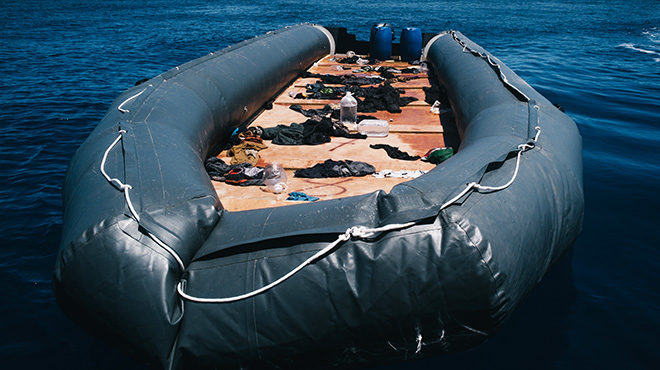News
Europe, do you call this »success«?

On 9 August, the Aegean became once more a graveyard: Seven refugee children died in the attempt to reach Greece after a boat capsized off the coast of Aydin province. Three years ago, the image of a small boy washed up on a Turkish beach led to an outcry. It became a symbol of the consequences of Europe’s refugee policy.
On 9 August, the Aegean became a graveyard for seven refugee children after a boat carrying around 13 refugees sank off the coast of Aydin province. A total of 9 people lost their lives. This recent tragedy happened nearly three years after Alan Kurdi, a small boy from Syria, drowned along with his mother and five-year old brother when the boat that carried them capsized off the coast of Turkey. The harrowing images of his little lifeless body seemed to sensitize the global community about the refugee crisis.
Since then, European leaders’ empathy for the tragedy unfolding on Europe’s shores has turned to shameful policies. The deaths of thousands are met with unethical deals that only focus on reducing arrivals. In the Aegean, the policy effected the containment of thousands of refugees in miserable conditions in one of the island hotspots with the aim of returning the arriving refugees back to Turkey.
Sea arrivals decline, death rate rises
UNHCR’s recent bleak announcement on refugee deaths at sea continuing in proportionally larger numbers – supports this point. Between January and early August, 1,522 refugees and migrants died during their attempt to reach Europe. Out of those, 105 including at least 28 children perished in the Aegean sea, off Turkey’s Mediterranean coast and off the coast of Northern Cyprus.
Further, at least 11 refugees including eight children and their mothers have lost their lives in three separate incidents this year in an attempt to reach Greece through Evros river.
There is a human life behind every of these numbers
Zubair’s story is described to us by his brother Darab. Zubair – better known as Sahil among his family and friends – was 9 years old. He died along with his 16 year-old brother, elder sister, father and four cousins when the boat that carried them capsized near the island of Agathonisi on 16 March 2018. 16 refugees including 9 children were killed in the tragedy. Only three survived. Detailed conversations by PRO ASYL/RSA with the survivors, hospital staff and local authorities as well as research conducted by the newsmagazine Spiegel indicate a failure by the Greek coastguard to conduct a prompt search and rescue operation.
‘He would turn tears into laughter and kisses’ the survivor of his family told us. While we are talking it gets clear, that Zubair was adored by his family. He was missing his mother desperately, who had previously managed to reach Greece with two siblings. He loved going to school but had to stop when the family fled Afghanistan.
His death was brutal and lonely. The three sole survivors of the tragedy said that Zubair fought hard with the waves and the cold in order to survive and he died alone as the others had already drowned or were unconscious.
Europe’s leaders have deliberately chosen to ignore the distress of desperate refugee families. In the absence of legal and safe routes to reach Europe, men, women and children are forced to undertake these cruel and often lethal journeys in order to seek protection and reunification with their loved ones. Zubair’s death is the macabre success of a European refugee policy following only one goal: to close off escape routes at any costs.